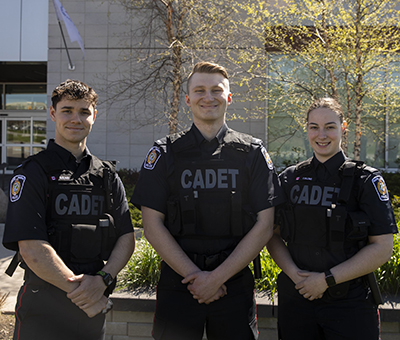To be considered for the position of police cadet, a candidate must:
-
be a Canadian citizen or permanent resident of Canada
-
be 18 years of age or older
-
be in good physical and mental health and able to meet the physical, mental, and medical requirements of the HRPS
-
be of good moral character and habits, that is, an individual other people consider trustworthy and as having integrity
-
have successfully completed at least four (4) years of secondary school education or equivalent (Note: Official transcripts and diplomas will be required)
-
Where education has been completed outside Canada, official proof of equivalency must be obtained. Both International and Canadian applicants may obtain educational equivalency assessments through one of the following agencies:
International Credential Assessment Service of Canada
35 Harvard Road P.O. Box 21001
Guelph, ON N1G 4T3
1-800-321-6021
World Education Services Canada (WES Canada)
45 Charles Street East, Suite 700
Toronto, ON M4Y 1S2
416-972-0070
Toll Free: 1-866-343-0070

